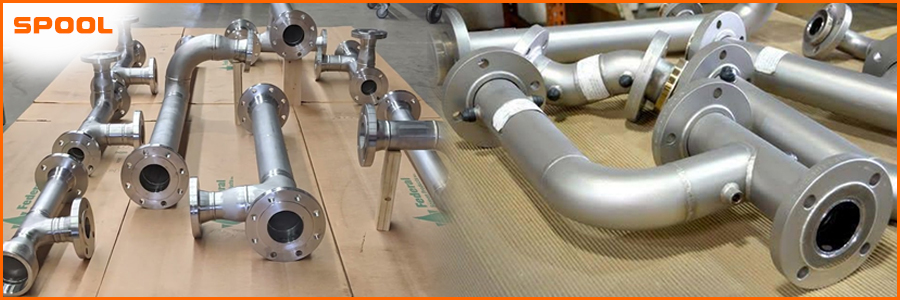Forged fittings are a mainstay in many industrial applications because they perform better and are more reliable than other fittings. Numerous advantages that make them perfect for challenging conditions account for their appeal. Let's have a look at the main benefits of using forged fittings in industrial settings.

Enhanced Strength and Durability
The remarkable strength and longevity of forged fittings are two of their main benefits. A solid piece of metal is heated and then formed using high-pressure machinery to create forged fittings. The grain structure of the metal is aligned through this procedure, increasing its strength and stress resistance. Thus, forged fittings are excellent for use in demanding industries like oil and gas, power production, and chemical processing since they can tolerate high pressure and temperature conditions.
Superior Resistance to Pressure and Temperature
Fittings made of forged metal are made to withstand high pressure and temperature changes. This is essential in sectors where equipment and pipelines must withstand challenging operating conditions. Forged fittings are less likely to fail under stress than cast fittings, which can be more prone to flaws and weaknesses. Their capacity to retain structural integrity under extreme pressure and heat guarantees the secure and effective functioning of industrial systems by reducing the chances of leaks and failures.
Improved Leak Prevention
Leak avoidance is crucial, especially in industries that handle precious or hazardous chemicals in industrial systems. Leak risk is significantly reduced by the tight, reliable seals that are feature of forged fittings. There is less chance of leakage at connection sites because they fit snugly and firmly since forged fittings are made with such accuracy. This reliability enhances the general safety and effectiveness of industrial procedures.
Cost-Effectiveness in the Long Run
Forged fittings are obviously more cost-effective in the long run, even though their initial cost may be more than that of other fitting types. They need less regular replacement and maintenance because of their resilience to wear and tear and durability. Over the course of the life of equipment, this offers significant savings by lowering repair costs and downtime. Forged fittings can result in significant total cost savings when initially invested in, especially in industries where reliability is critical.
Versatility and Customization
Forged fittings can be used in a variety of applications since they come in so many different sizes and configurations. If you require flanges, reducers, elbows, or tees, forged fittings can be made to order to satisfy particular needs. Their adaptability enables their utilization in various sectors and applications, ranging from complex machinery to high-pressure pipelines.
Compliance with Industry Standards
The quality and dependability of forged fittings are guaranteed by their manufacturing process, which adheres to strict industry norms and regulations. Adherence to these criteria contributes to the assurance that the fittings satisfy safety regulations and function as intended. An important benefit for sectors with strict quality and safety standards is the certainty of compliance.
The advantages of using forged fittings in industrial applications are clear. They are a great option for challenging applications because of their higher strength, durability, resistance to pressure and temperature, and fatigue resistance. Their ability to stop leaks, durability, adaptability, and conformity to industry norms all serve to emphasize how valuable they are. Industries can guarantee the secure, effective, and dependable functioning of their systems by investing in forged fittings, which makes them the go-to option for vital applications.






